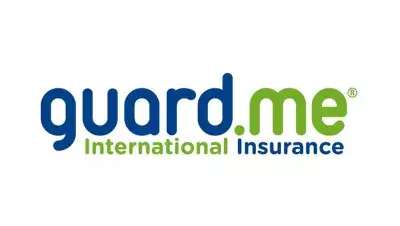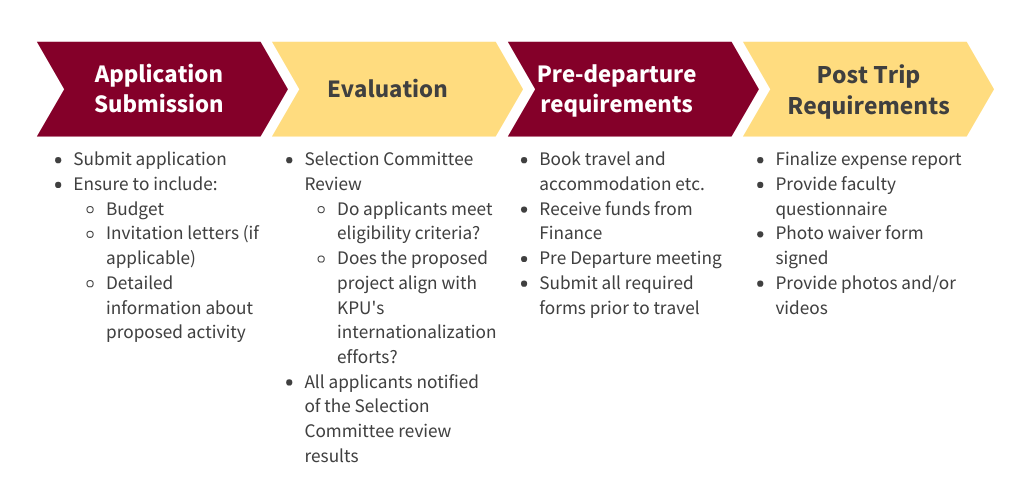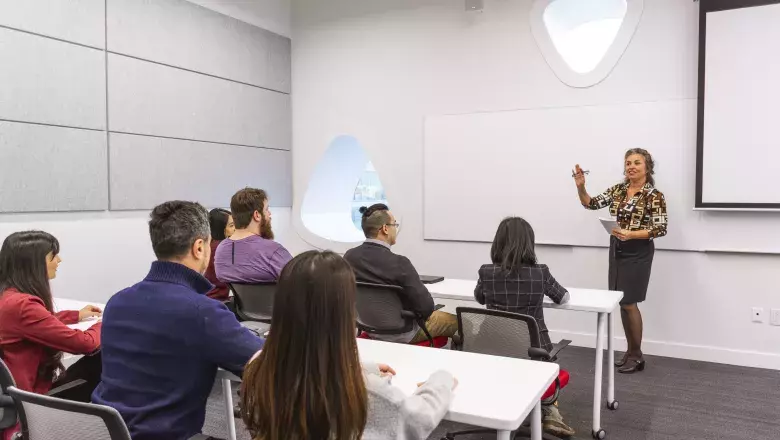
What is the MIF?
MIF is a funding opportunity for KPU instructors. This fund exists to support KPU instructors who wish to lead international initiatives that align with the internationalization of higher education, such as, for example, exchanging best practices with KPU’s existing or new partners, promoting mobility among KPU students, strengthening and/or creating new relationships with international partners etc.
This funding opportunity is made possible through the generous support of GuardMe International Student Insurance and KPU.
Applicants must be REGULAR (Full-time or Part-time) or NON-REGULAR TYPE 2 (Full-time or Part-time) KPU faculty employees. Please refer to regular KPU faculty employee definitions as outlined in the faculty collective agreement. See Article 1, Section 1.05 (Definitions).
Applicants are eligible for funding of up to C$5,000 to support their projects.
Funding must be used to pay for eligible travel expenses that correspond to and comply with KPU’s Business and Travel Expense Procedures.
How to Apply
Submit the following documents to global.partnerships@kpu.ca by the application deadline:
Applications have closed
Application Process

What can I do with the MIF?
There are many activities you can engage in with the MIF.
Some examples of eligible activities are:
- Participation in international conferences that have a direct international educational focus. Note: Preference will be given to the applicants presenting at conferences highlighting KPU’s internationalization;
- Exchange of academic materials with international universities and organizations;
- Shared and/or mutually agreed upon teaching of students and experiential learning programs for students (e.g. developing a Collaborative Online International Learning (COIL) course, guest lecturing, field schools, work integrated learning, etc.);
- Collaborative academic programs;
- Development and delivery of joint seminars, and academic meetings that have an immediate international educational focus.
This list of examples is not exhaustive; we encourage faculty to apply for any projects/initiatives that serve to internationalize scholarship.
Past Funding Projects
We have supported faculty in a number of international initiatives that align with the internationalization of higher education.
Featured Faculty Stories
Where to Find More Information?
Details regarding the purpose of this fund and its priorities, eligible and ineligible project activities and expenses, pre and post-trip requirements and other important information can be found in the MIF Applicant Guidelines.
Questions?
The Global Development and Partnerships Team is here to support you! Check out the FAQ page or contact us at global.partnerships@kpu.ca.




